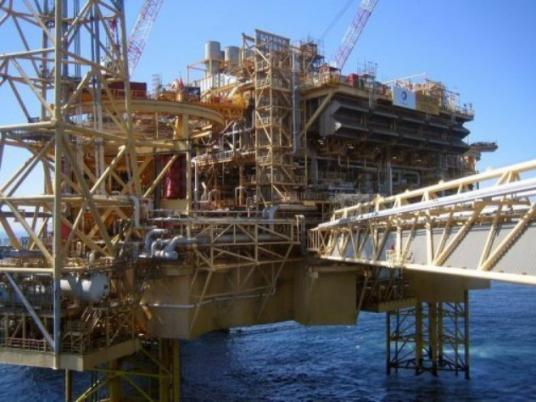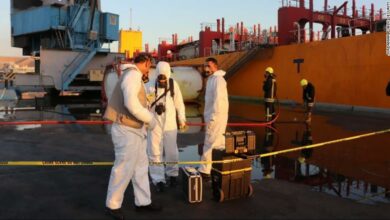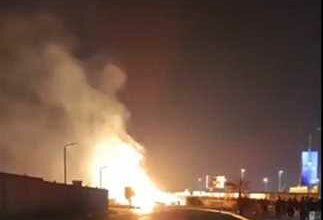
Gas leaking from a North Sea platform forced the evacuation of a second rig on Tuesday, as coastguards banned ships and aircraft from traveling within miles of the accident.
French oil giant Total, which operates the stricken Elgin platform 241 km off Aberdeen on Scotland's east coast, said the leak was the most serious problem it had faced in the North Sea in a decade.
More than 300 people have been evacuated from two rigs since the leak was discovered on Sunday.
Ships have been ordered to stay at least 3.7 km from the platform while the coastguard imposed a three-mile air exclusion zone.
A cloud of gas has reportedly surrounded the platform, while Total confirmed there was a six-mile-long sheen on the water nearby.
Total said it was taking "all necessary measures" to try to identify the source and cause of the leak and to bring it under control, but the company's shares plunged 5.85 percent on the French stock market to close at 38.56 euros.
"It's the biggest problem we've had for ten years in the North Sea," a Total spokesperson told AFP.
"It's not going to be solved straightforwardly — it will take at least a few days," the spokesperson said, adding that experts were flying in from all over the world to help stop the leak.
Simon Boxall, an oceanographer at Southampton University in southeast England, said he believed there was a strong risk of a gas explosion.
"We're dealing here with a very toxic and flammable substance," he told BBC television. "It's got to be approached very carefully."
About 85 crew on board nearby facilities operated by Anglo-Dutch giant Shell, the Shearwater platform and Noble Hans Deul rig around four nautical miles from Elgin, were evacuated on Tuesday as a precautionary measure.
Drilling operations on the Noble Hans Deul rig have been suspended.
"We are therefore shutting down production in a controlled manner," Shell said in a statement.
Total said it was considering various ways of stopping the leak.
"One of the possibilities is to drill a relief well, but we hope to find another solution because that would be time-consuming," a spokesperson told AFP.
"We are fairly sure that the leak is on the platform above the level of the sea, which probably makes it easier to spot," he added.
The BBC quoted a Total official as saying it could take six months to drill a relief well.
More than 230 workers were evacuated from Elgin on Monday after the leak was detected. The company said all personnel had been accounted for and no injuries had been reported.
Total said it had readied a plane carrying dispersing agent to remove the sheen of light gas condensate on the water, but it did not expect it would need to use it.
"We believe it will evaporate," explained a spokesperson. "We don't believe it is a major threat to the environment."
A surveillance plane flew over the area twice on Monday and three further flights were planned on Tuesday, he said.
Boxall said that since the leaking well was nearing the end of its use, the pressure inside it could be lower than usual and it was possible the leak would stop by itself.
"But it's a bit of a gamble to say that will happen," he said. "Total, obviously, need to start making moves to stem the flow, either by pumping mud down through the hole or by drilling a relief well."
The last major accident in the North Sea was in 1988, when the Piper Alpha oil platform, operated by the US-based Occidental Petroleum, exploded killing 167 people.
The Deepwater Horizon drilling rig in the Gulf of Mexico blew up nearly two years ago, killing 11 crewmen and causing oil to gush into the water triggering the worst environmental disaster in US history.



